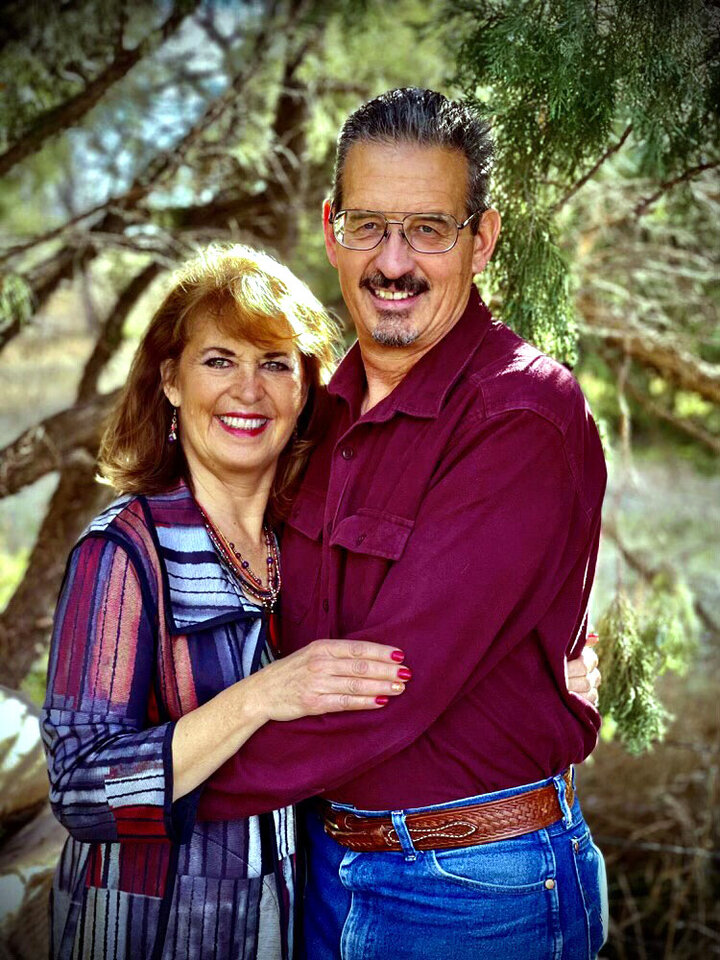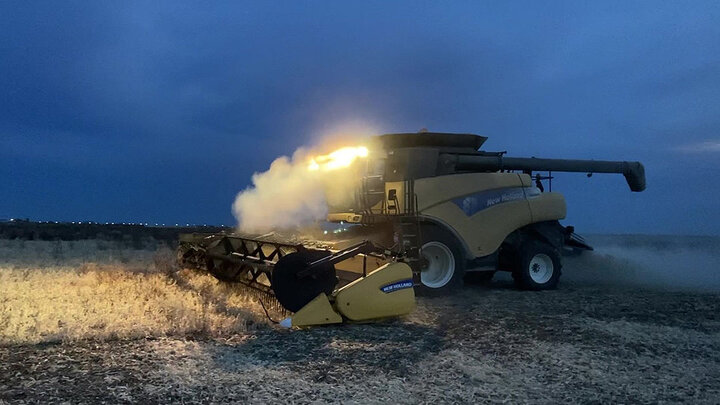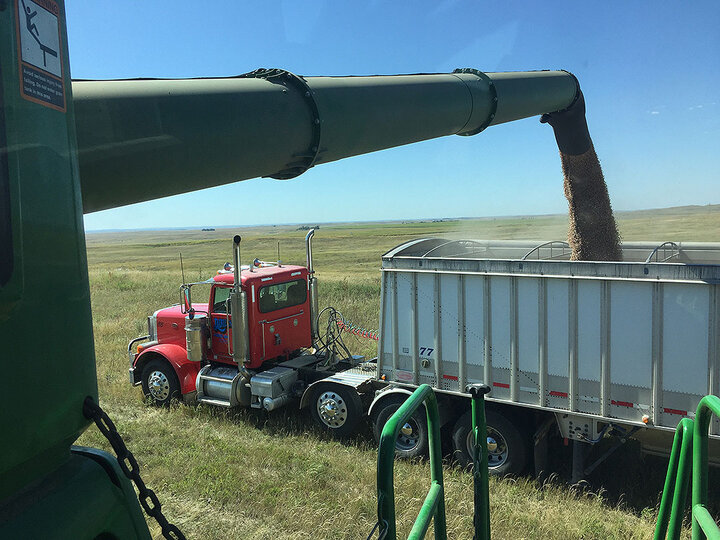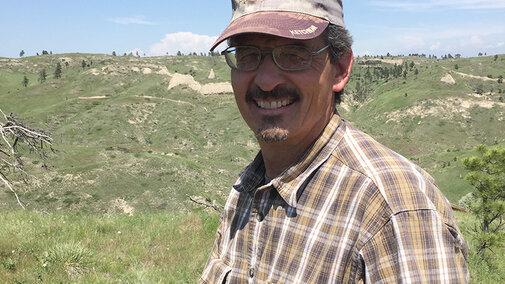“Digging into Extension”, a CropWatch feature series, shines a spotlight on the professionals of Nebraska Extension, highlighting their roles in extension and services they provide to Nebraska farmers and ranchers. We hope you enjoy getting to know your local Nebraska Extension educators and specialists while reading Digging into Extension!
He’s always been a man of many hats.
A Colorado native, John Thomas has collected a variety of professions throughout his lifetime — a service and installation technician in the telephone industry, a vocational missionary in Ethiopia, a Nebraska farmer. But his lifelong love of nature and working outdoors is what finally brought him to Nebraska Extension.
“Growing up in the mountains triggered it,” Thomas said. “I was always doing a lot of outdoor stuff.”
It was also a bit of brotherly love — John and his wife, Debbie, moved to western Nebraska in the early ‘90s to help with work on his brother Carl’s farm.
After about a year of farm life, Thomas said he was pondering his next career move when a position opened at the University of Nebraska-Lincoln Panhandle Research, Extension and Education Center. So he threw his hat in the ring for something new.
Though his bachelor’s degree was in forestry and range management, Thomas’s focus shifted to pests when he became the new research extension assistant at PHREEC. Thomas worked alongside UNL Professor of Entomology Dr. Gary Hein on a research project studying Russian weed aphids — a new pest for Nebraska at that time.
That project led to a 14-year career at PHREEC for Thomas, a timeframe during which he also earned his master’s degree in entomology from UNL. He spent another four years working closely with UNL Associate Professor Carlos Urrea on dry bean research before tossing his hat once again in 2012 — this time, for the Crops and Water Extension Educator in Box Butte.
Thomas has been the Box Butte extension educator ever since, driving two hours round trip every day from his home in Mitchell to the extension office in Alliance, where he serves the people of Sioux, Dawes, Box Butte, Sheridan, Scotts Bluff, Banner, Morrill and Garden counties.

Working in Extension
Though his territory covers quite an expanse, it really doesn’t hold a candle to the number of hats Thomas wears today.
“People come to me with tons of questions on everything from their gardens, lawns, trees …” Thomas began. “They’ll bring bugs in from home. They ask questions about fertilization, tomato diseases, water, a lot of crop questions, too. Land rental prices, land values, advice on dry beans and direct harvest, entomology issues — I get a large cross-section.”


Needing to be an entomologist one day and a plant pathologist the next doesn’t faze him though. That kind of challenge is right up his alley: A gardener, outdoorsman, farmer, logger — variety is just his cup of tea.
“I kind of already have a pretty broad range of knowledge because of everything I’ve done in my life,” Thomas said with a chuckle. “And there’s tons of resources where I can look things up.
“I have a question on my desk right now, ‘Can I dig up and transfer lilies now?’ I’m not an expert on lilies, so before I call this person back, I’m going to look some things up, talk to some other extension educators. I can get the answers.”
In fact, the camaraderie amongst the extension educators is such that it’s listed under “favorite parts of the job” for Thomas, too. He regularly works with other extension educators, particularly the 4-H educators and staff, to support 4-H programs in the Panhandle.
He’s connected to individuals and organizations across the ag sector too, from local bean industry companies and co-ops to USDA NRCS. Thomas is regularly involved in a slew of projects that aim to educate and assist Nebraskans on all things agriculture, like his ongoing on-farm research on a direct harvest system for dry edible beans.
The connections he develops with the local Panhandle farmers, though, that’s top of his list.
“Riding in the tractors and working on the combines — you’re right there with them, planting and growing,” Thomas said. “That personal interaction with the growers is one of the most rewarding things.”
Thomas hopes those connections continue to grow as more Nebraskans discover the value of extension — where they answer questions about bedbugs, farm rental rates and everything in between, without missing a beat.
“Extension is important to the ag industry, because we try to present unbiased scientific information,” Thomas added. “When people come into my office and ask questions, I’m not trying to sell them anything — I’m honestly trying to get them help with their questions and dilemmas.
“We’re on the radio. We’re in the newspapers. Extension is here, serving the community in a broad range of knowledge and information.”
John Thomas is the cropping systems extension educator for Sioux, Dawes, Box Butte, Sheridan, Scotts Bluff, Banner, Morrill and Garden counties. To connect with him, email jthomas2@unl.edu or call 308-762-5616.

